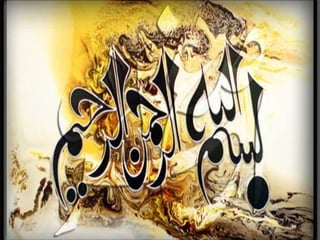Romanticism ppt
•Download as PPTX, PDF•
4 likes•5,645 views
This document discusses the key aspects of romanticism in education. It emerged during the 18th-19th century as a reaction against rationalism, prioritizing imagination, creativity, and individual experiences. Romanticism emphasized child-centered education that allows freedom of expression and self-paced learning. The role of the teacher shifted to a facilitator who motivates students and organizes a supportive learning environment.
Report
Share
Report
Share

Recommended
Recommended
More Related Content
What's hot
What's hot (20)
Similar to Romanticism ppt
Similar to Romanticism ppt (20)
Ppt tirunevelli webinar 2020 july contribution of western schools of thoughts

Ppt tirunevelli webinar 2020 july contribution of western schools of thoughts
Historical development of education and historical development of pedagogy

Historical development of education and historical development of pedagogy
Historical development of education and historical development of

Historical development of education and historical development of
HISTORICAL DEVELOPMENT OF EDUCATION AND HISTORICAL DEVELOPMENT OF PEDAGOGY

HISTORICAL DEVELOPMENT OF EDUCATION AND HISTORICAL DEVELOPMENT OF PEDAGOGY
THE IMPORTANCE OF THE SOCIOLOGY AND PHILOSOPHY OF EDUCATION TO COMPARATIVE ED...

THE IMPORTANCE OF THE SOCIOLOGY AND PHILOSOPHY OF EDUCATION TO COMPARATIVE ED...
Romanticism ppt
- 3. INTRODUCTION ROMANTICISM IN PHILOSOPHY BASIC ASSUMPTIONS OF ROMANTICISM AIMS OF EDUCATION CHILD –CENTERED CURRICULUM ROLE OF TEACHER DISCIPLINE TEACHING STRATEGIES CONCLUSION
- 4. •ROMANTICISM emerged during the AGE OF ENLIGHTMENT(dominating theme in 18- 19th century). •Focus on self- awareness to improve society. •Stands in opposition to the Rationalism and Empiricism of the preceding AGE OF REASON. •Age of Enlightment believed on Imaginations, Freedom, Intuitions. •Subjectivity of approach, the Absolute uniqueness of every individual.
- 5. •Philosophical Romanticism emphasized the importance of Values, Tendencies and experiences of life. •INVALID OBJECTIVITY. •REALITY AS SUBJECTIVE FEELINGS. •SELF –CREATIVITY. •DISCOURSE OF NATURAL EXPERIENCES. •DISCOURSE OF FEELINGS AND IMAGINATIONS.
- 6. Romanticism has been found in the work of Jean Jacques Rousseau and a German Philosopher Immanuel Kant. Romanticism was a literary movement born in 18th to 19th century in France, Germany, England and other countries. Romanticism was emerged in England by eminent thinkers and poets such as William words worth, Percy Shelley’ John Keats and William Blake. Romantic poetry based on passion, imagination and sentiments.
- 7. Focus on individuality than Society. Ugly image of civilization. Purpose of education is self- fulfillment. To build self- realization through learning. Emphasized childhood and elementary education. Learning is self-paced activity. Child- centered curriculum. Encouraged creativity, expression and individual experiences. Role of teacher as a facilitator or guider.
- 8. Purpose of education should be based to make learner stronger(physically, socially , intellectually and morally) to resist evils of society. Supreme aim of education is to built courage, equality, simplicity and liberty in children by interacting with natural experiences.
- 9. Romanticist stressed on learner centered curriculum , student has the freedom of expression. Influence on early child - hood education. Greatest freedom of movement must be given to children. Curriculum should be built around curiosity to develop desire for knowledge. Astronomy, arts humanities, history, religion, poetry and physical sciences and natural sciences should be taught to student.
- 10. Major responsibility of teacher is to motivate the child to learn and participate in learning. Teacher play the role of an organizer of the learning environment. Teacher should not impose punishment and force in learning environment. Role of teacher as a facilitator of learning environment.
- 11. A literary movement emerged during the 18th to 19th century. Shift from the industrialization to poetry, art, literature and music. Prioritize sensory experiences as compared to reason. Give more importance to intuition, imagination and feeling of expression. Focus on more individualized kind of education.
